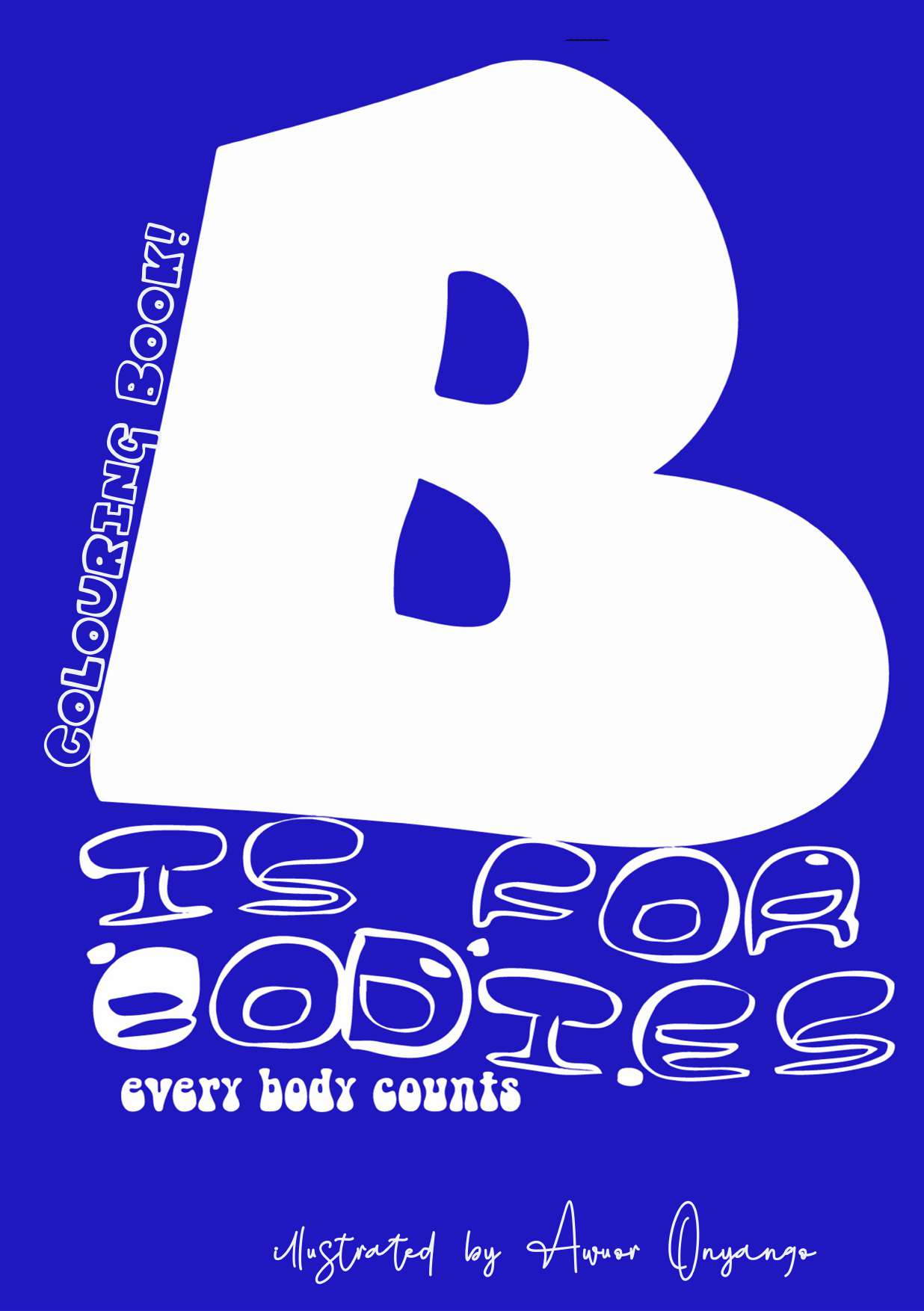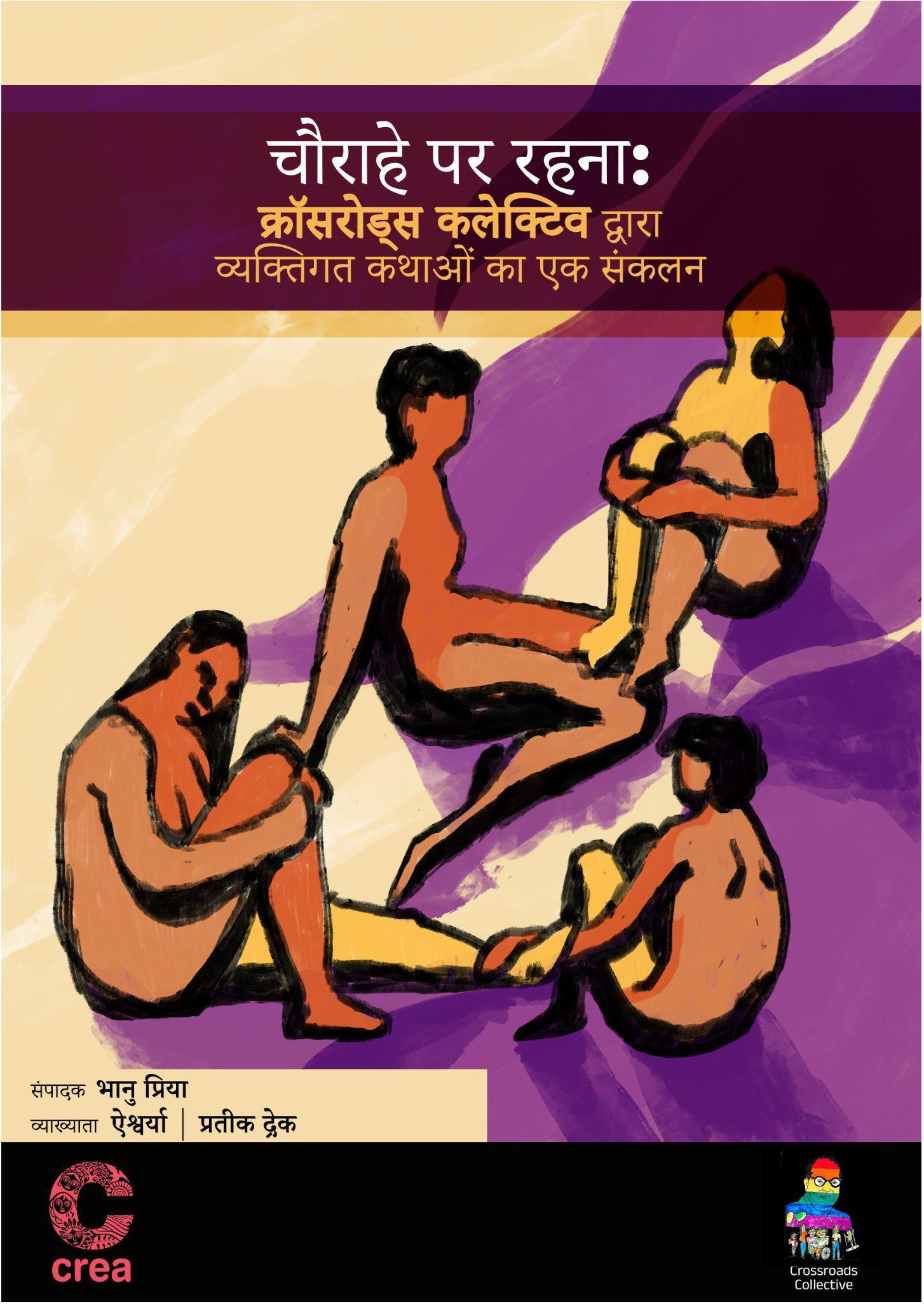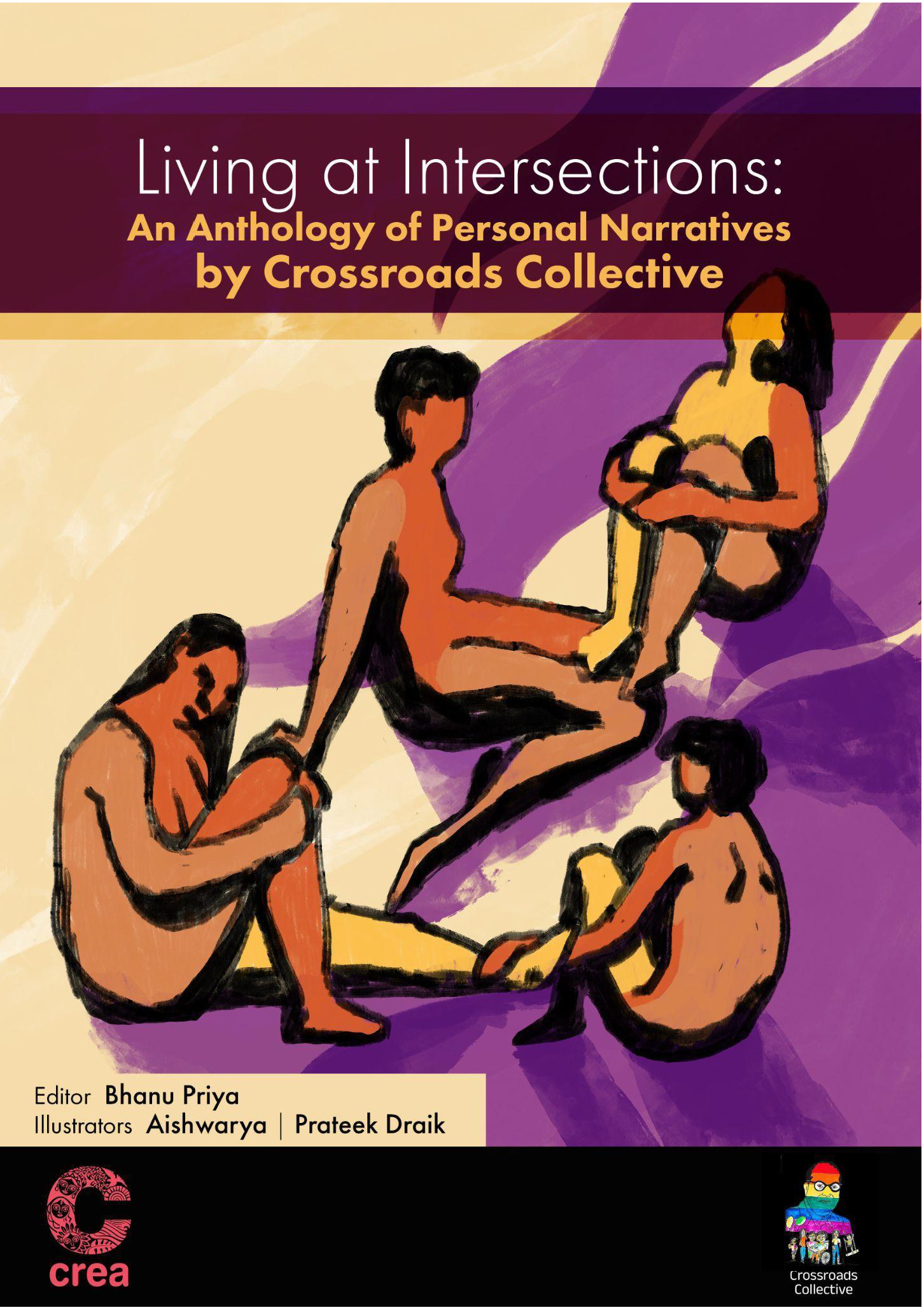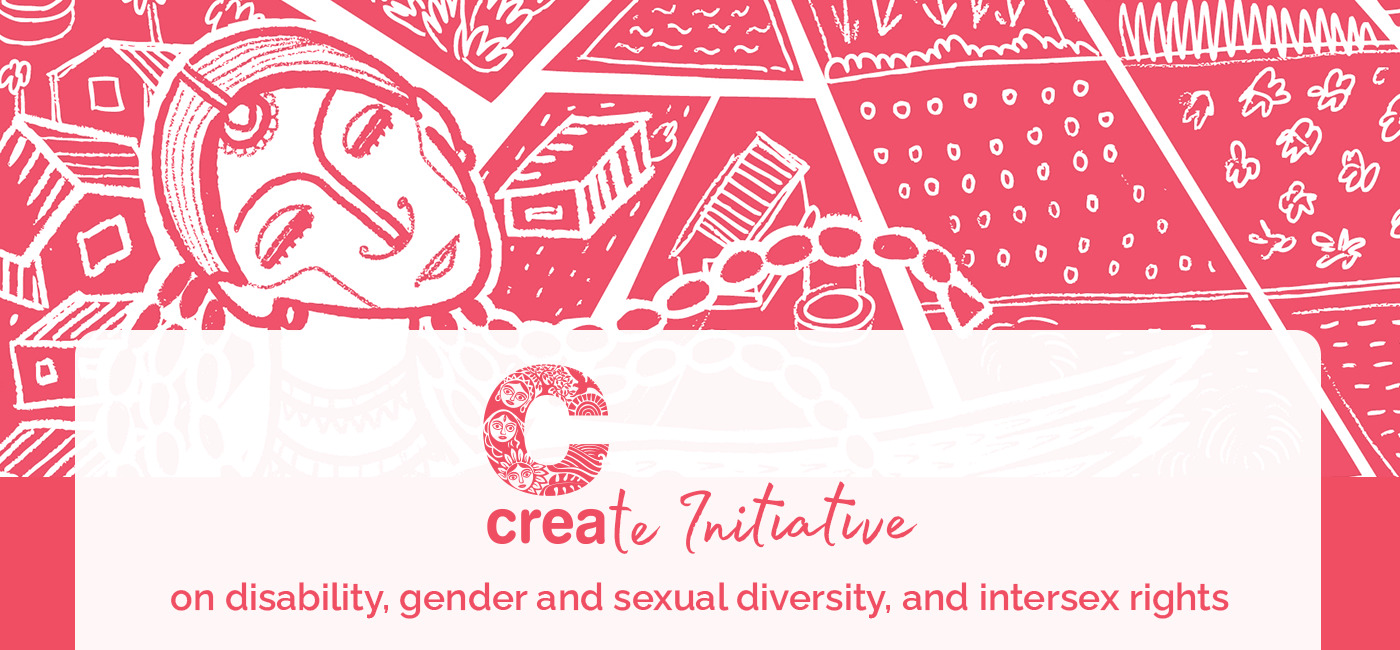
In January 2022, CREA invited six Creators from a pool of 191 activists, scholars, artists, researchers, storytellers, and community organizers to join our Create Initiative. The nine-month initiative provided financial assistance, technical guidance, and an enabling environment, to support their production of knowledge resources, art, storytelling, and advocacy strategies that embraced sexual and gender diversity, and intersex rights, at the intersection of disability rights and justice.
The goal of the Create Initiative was to draw attention to existing work at the intersections of disability, gender and sexual diversity, and intersex rights, identify common ground, and surface fault lines and nuances across movements. The Initiative also sought to generate greater understanding and promote cross-movement solidarity. The knowledge, art and analysis developed and interpersonal experiences gained from the initiative serve as the foundation for cross-movement engagement, and the reshaping, rethinking, and rebooting of Crea’s commitment and work moving forward.
Meet the 2022-2023 Creators and view their transformative work that was produced over the course of the Create Initiative below:
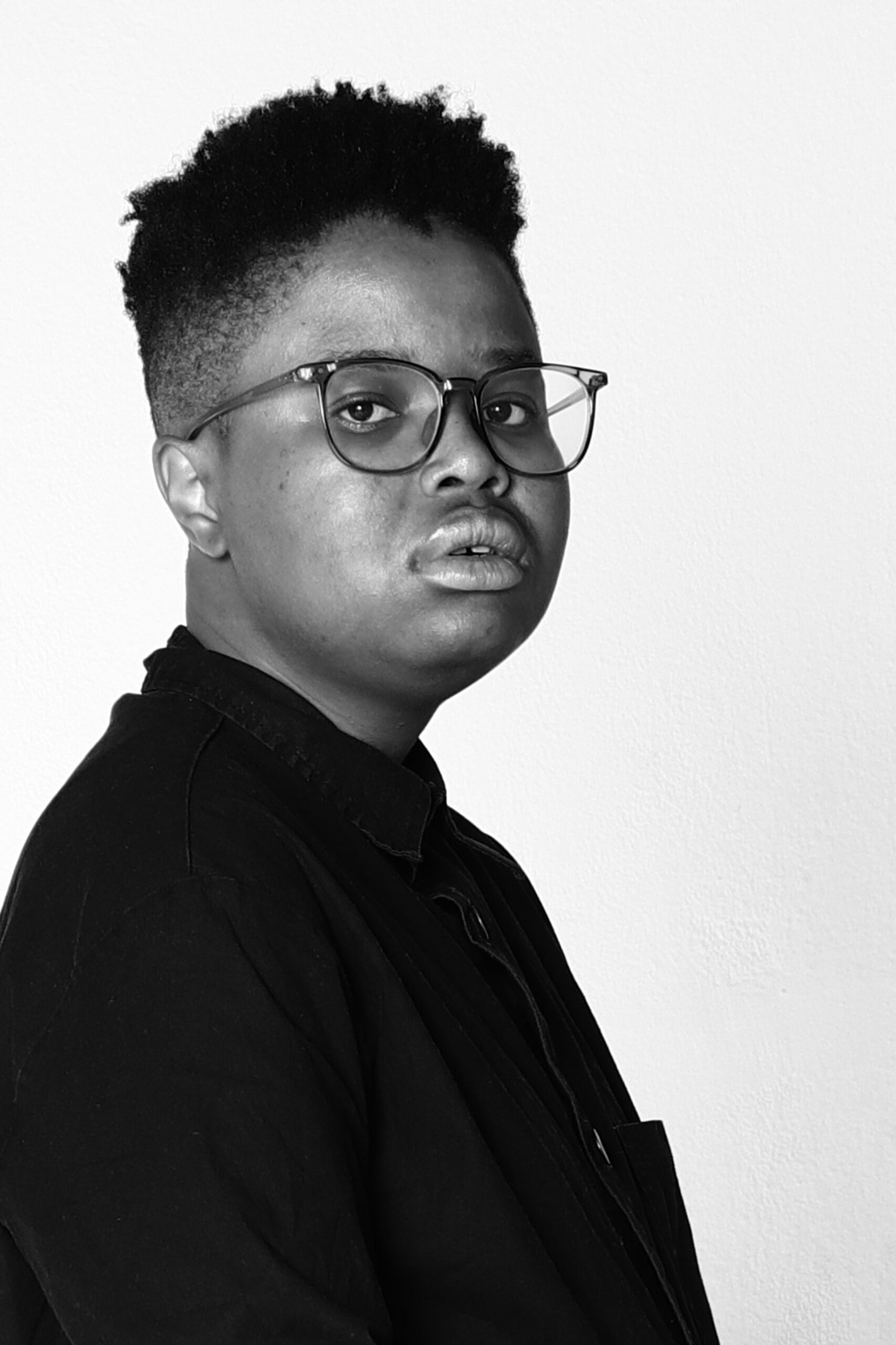
Carbon uses art to express through a multimedia performative exhibition “Not Dead Yet”, which centers on a performance art piece held in February 2023 in South Africa. Made through collaborations with various queer, trans, and disabled artists, the exhibition springboards from Carbon’s poetry on themes of disability, gender, and race. Carbon’s performance uses elements such as film, animation, poetry to reflect on how we have been raised and raise ourselves. It is a journey through a suicidal, neurodivergent, and bipolar brain coming to understand one’s own disabilities, musing on the joys and difficulties of transgender life, all while living as a black person in “post-Apartheid” South Africa.
This performance art piece has been collated into a zine with access to all parts of the exhibition. Through a collaborative effort, working with poetry editors, animators, music producers, and other creatives, Carbon brings to life the pain, chaos, and complexity of the lives of communities and their existence. It is truly a transformation of Carbon’s personal experiences to be political.
Carbon is also open to collaborations and/or requests to host this resource in alternative spaces.
Share:
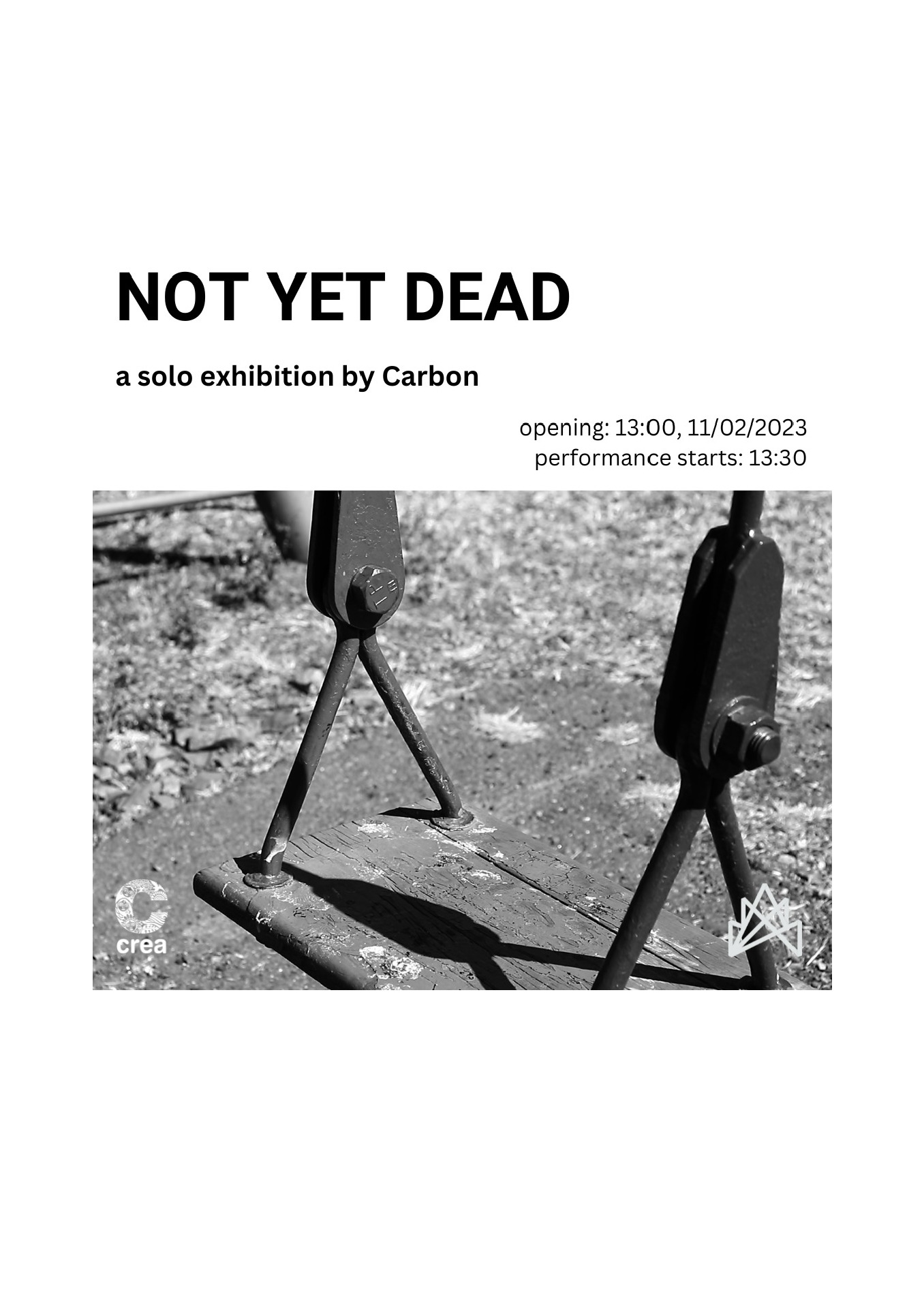
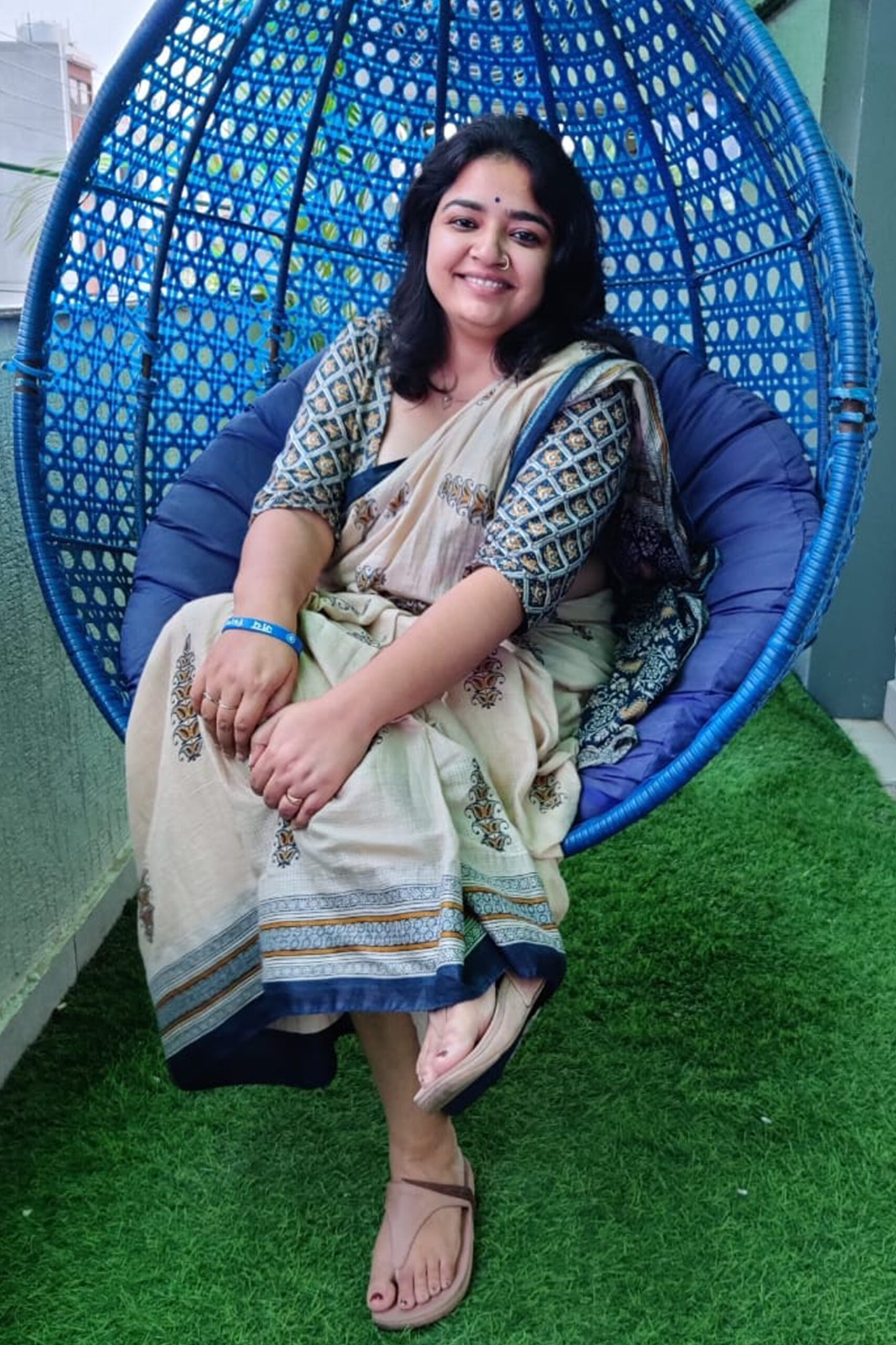
Bhanu Priya – She is a non-binary Bahujan queer feminist, and a person with psychosocial disabilities and chronic pain. She has also been a writer for In Plainspeak, Mad in Asia, Velivada, Criminal No More, and Gaysi Family. She has completed her M.Phil. in Women’s and Gender Studies from Ambedkar University, Delhi. Her areas of research and advocacy are gender, caste, disability, and sexuality. She was a PhD candidate in Disability Studies in the US and had to leave the PhD program because of lack of mental health support in the university.
Bhanu is the founder of the Crossroads Collective, which is solely for and by Dalit-Bahujan-Adivasi people with disabilities, chronic conditions and caregivers, and queer-trans persons within these communities. In her role, Bhanu engages in movement-building at the intersections of gender, disability, caste, and sexuality.
Exploring story-telling at the intersections of sexuality, disability, and caste, Bhanu published an anthology of personal narratives that tell the varied experiences of Dalit-Bahujan-Adivasi individuals living with disabilities and chronic illnesses. These first-hand stories are based off of a network established by Bhanu called the Crossroads Collective that is maintained by and for Dalit-Bahujan people with disabilities.
Bhanu led a series of training, workshops, narrative writing sessions, and groundbreaking discussions around caste, disability, and queer spaces with the Collective to elicit and understand the range of experiences. These collective efforts enabled open discussion, with art and writing facilitating the sharing of difficult experiences and emotions. It is with recognition that there remains too little conversation around the themes of disability, sexuality, and caste.
Bhanu and her collective are also open for collaborations and/or requests to host this resource in alternative spaces.
Share:
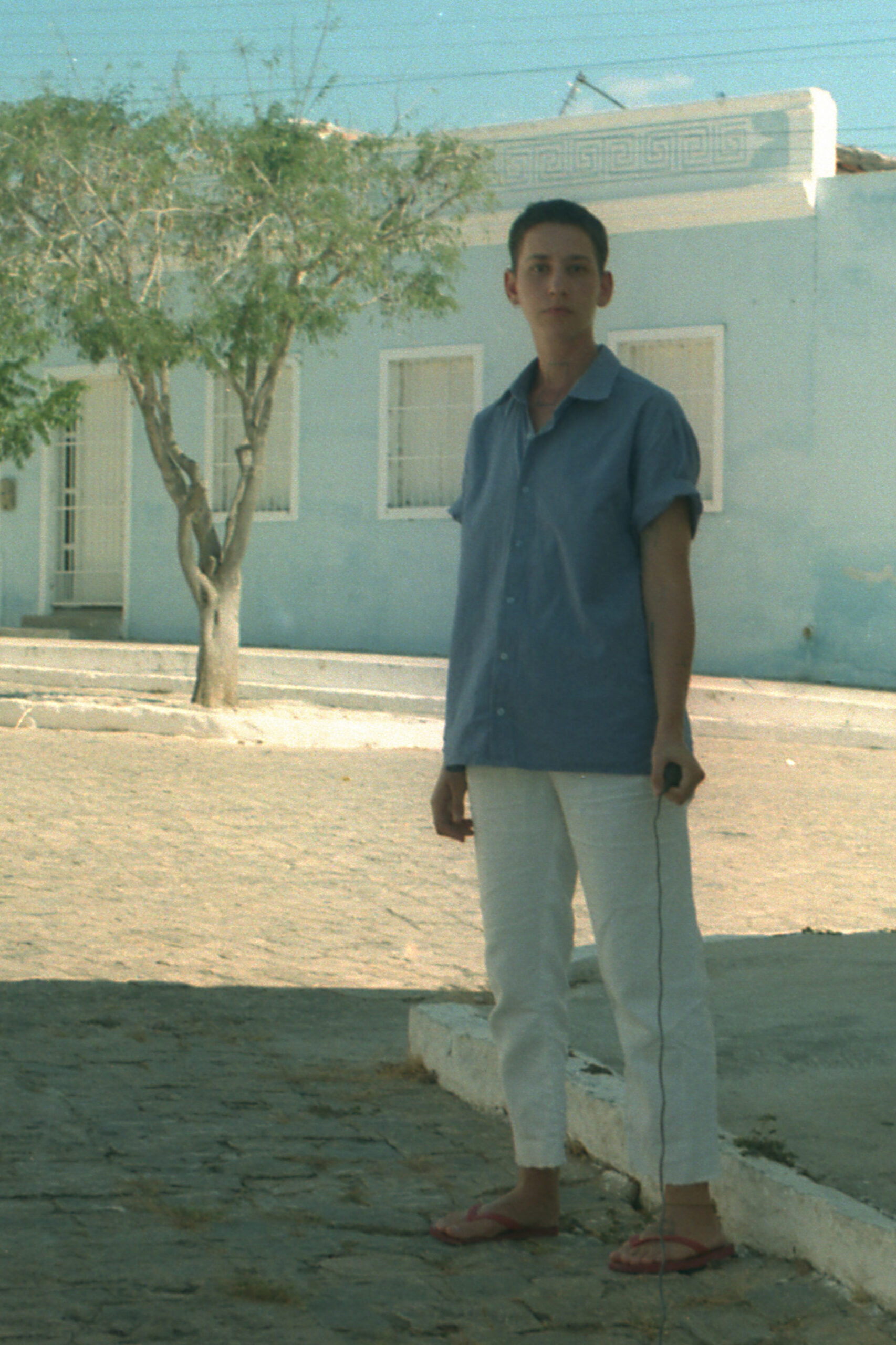
jialu works with art and research. They have a PhD in Clinical Psychology from PUC/SP, Brazil, with a thesis on clinical processes and language creation as ways to decolonize life of the western society binarism structure. jialu also has a Masters in Visual Arts from UFRJ, Brazil. jialu is involved in artistic and craft processes connected to reflections on care, seeking to create works that offer a multi-sensory experience. As someone who is neurodivergent and gender dissident jialu’s research focuses on issues that promote social justice and equity. Topics such as gender, sexuality, the body, subjectivity, self-expression and language have been present in jialu’s artistic and academic work and also explored in lectures, workshops and classes they teach.
We are all multiple, you know, inside us. We are not just one thing, and our sense of existence and our identities are always changing. Some things can be more permanent. But, we are always changing. I think intersectionality tries to deal with the multiple layers that everyone has, that is, in relation with the other layers of others. So for me it’s very important to not be stuck in a rigid sense of identity. Because the identity policies are very restricting around the immensity of our existence in the universe.
So I think intersectionality can help us to look at our existence in a larger way. Not just as an identity criteria. And even when we look at the identity criterias with intersectionality, we can remember the identities are also multiple and changing. And I think this could be connected with the sense of creation. I think creation is life. We are creations, and we are creating as we live. Creation is not something rigid and life is always changing.
jialu combines academics, storytelling, and poetry in a booklet on the intersectionality between invisible disabilities and gender and sexual diversity. The booklet, produced as two versions, in English and Portuguese, is a collection of stories about the experiences of six people (including jialu) from different regions of Brazil, whose invisible disabilities are also uniquely interconnected with their journey with gender and sexual diversity.
To tell these stories, jialu established a small network working with individuals including persons with hearing impairments (one of them with attention deficit hyperactivity disorder, or ADHD), a person with a psychosocial disability, a person with fibromyalgia, and a person with autism spectrum disorder (ASD). jialu held informal one-on-one conversations and collective meetings with the individuals who form the backbone of this project. Working together on thematic focus and storytelling, each of them created their own narrative using text and/or images. The stories are preceded with an introduction text based on jialu’s academic background that foregrounds invisible disabilities as necessary and important in how we define and think about disability. The stories weave together nuance and focus across multiple topics including gender identity, transition, accessibility, autonomy, sexuality, ableism, normativity and more. The booklet embodies jialu’s way of thinking — questioning and reflecting on issues — and is an attempt to communicate these reflections that can educate and allow for continuing and growing conversations.
jialu is open to collaborations and/or requests to host this resource in alternative spaces.
Share:
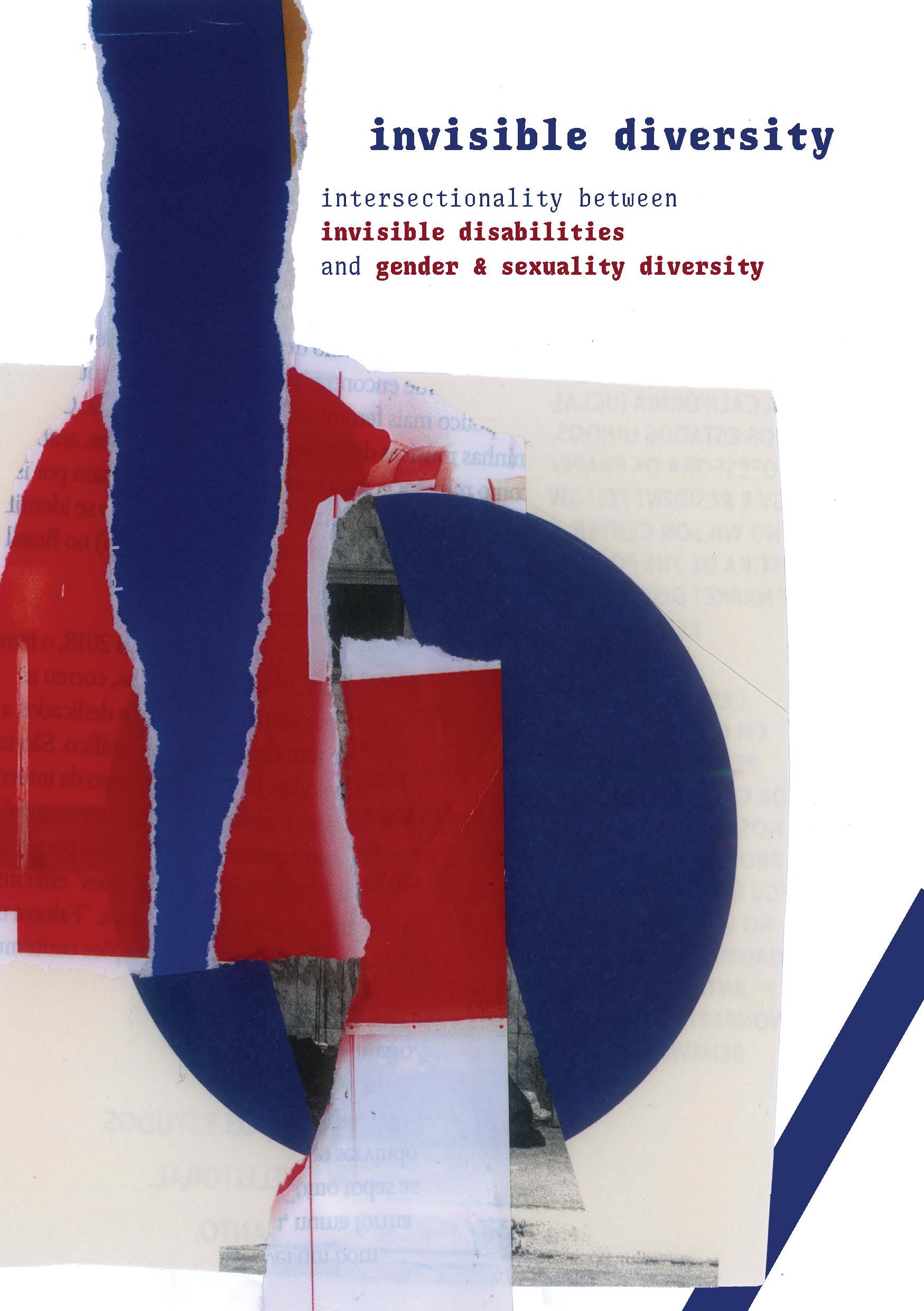
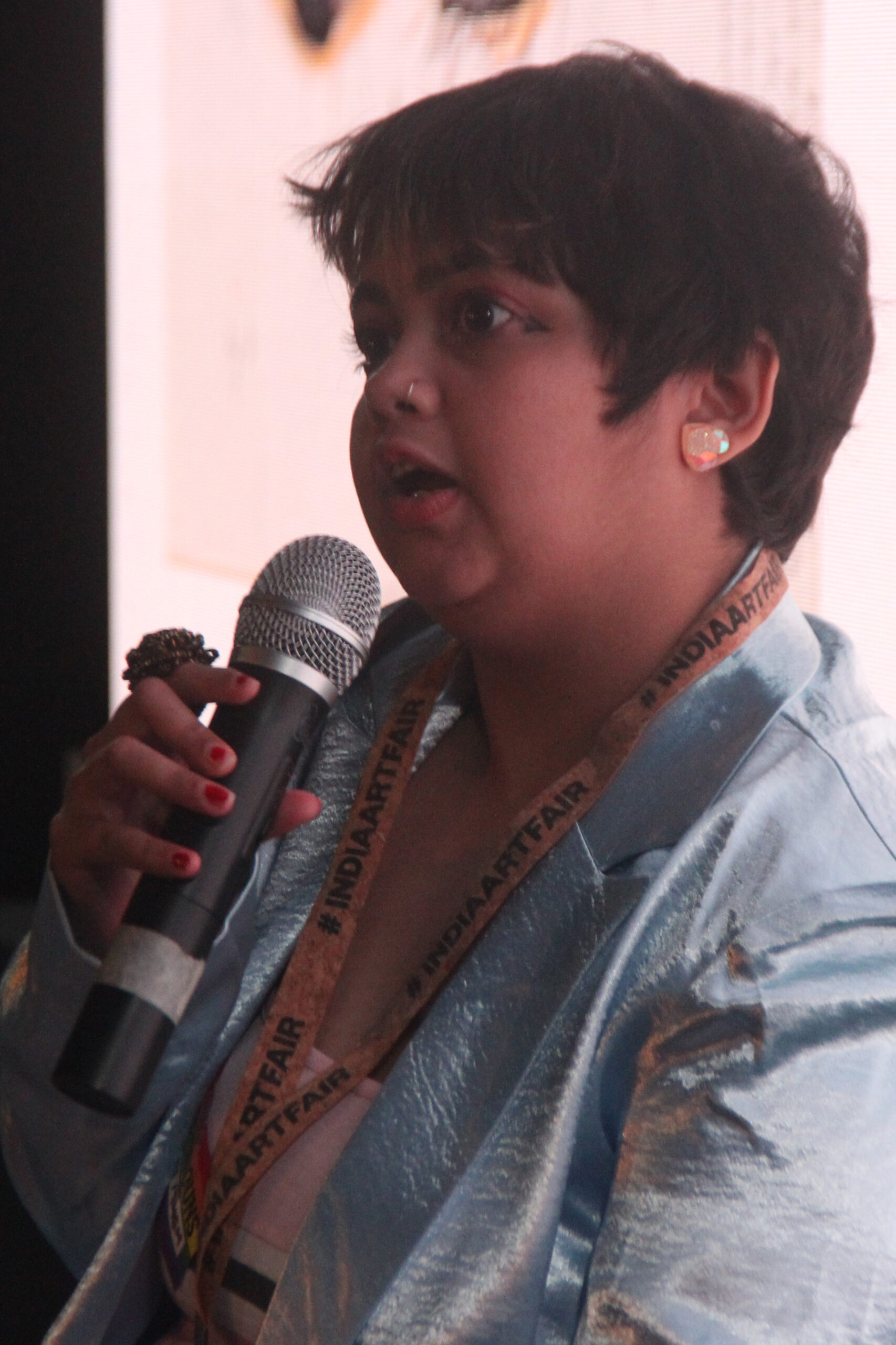
Nu (they/them) identifies as a disabled and queer person and is a psychology graduate from Lady Shri Ram College For Women, Delhi and is currently doing their master’s in Gender Studies at TISS, Bombay. They are a disability justice author, curator, and editor. They are the founder of the United Nations-recognized Revival Disability Community and firmly believe that intersectionality gives disabled folks the emotional skin to survive in the world and that vulnerability should be celebrated. According to them, the revolution would be incomplete without disabled joy and dissent. Their main aim through their community is to unhide disability and to “bring an accessible chair with armrests to the table so that they finally listen to us”. They have contributed their words in several publications, such as The Hindu, Feminism In India, Penguin Random House, The Print, Quint and Mid-day Mumbai. A debut author and a 2022 CREA fellow, they plan on taking up space in the world one limp at a time!
There is no guidebook that one can follow in terms of how to navigate dual oppressive systems of ableism and heteronormativity. There exists no guiding points on a presentation that teaches us how to deal with disability-based queer violence. The visible and invisible markers of identity on our body determine our everyday fate in public and private spaces, they determine how we are perceived, and in turn how we perceive others.
Nu makes a bold and feminist articulation of gender, sexual diversity, and disability through a narrative-based campaign titled “Disabled Folks Riot”. Recognizing the limited discussion around ableist and gendered abuse, the campaign focuses on disability-based violence against queer women, trans, and non-binary persons with disabilities. Nu employs their skills as a communicator, and experience spearheading social media campaigns and conversations, to design an accessible presentation — a resource to support the work of other non-governmental organizations and organizations working on gender-based violence (GBV) and disability-based abuse.
Conversations around GBV rarely feature disability, and similarly, the disability space requires a deeper look at the violence, particularly at the intersections of disability, gender, and sexuality. Nu tackles this through the crafting of narratives on these topics, rarely articulated, often silenced.
Nu is open to collaborations and/or requests to host this resource in alternative spaces.
Share:
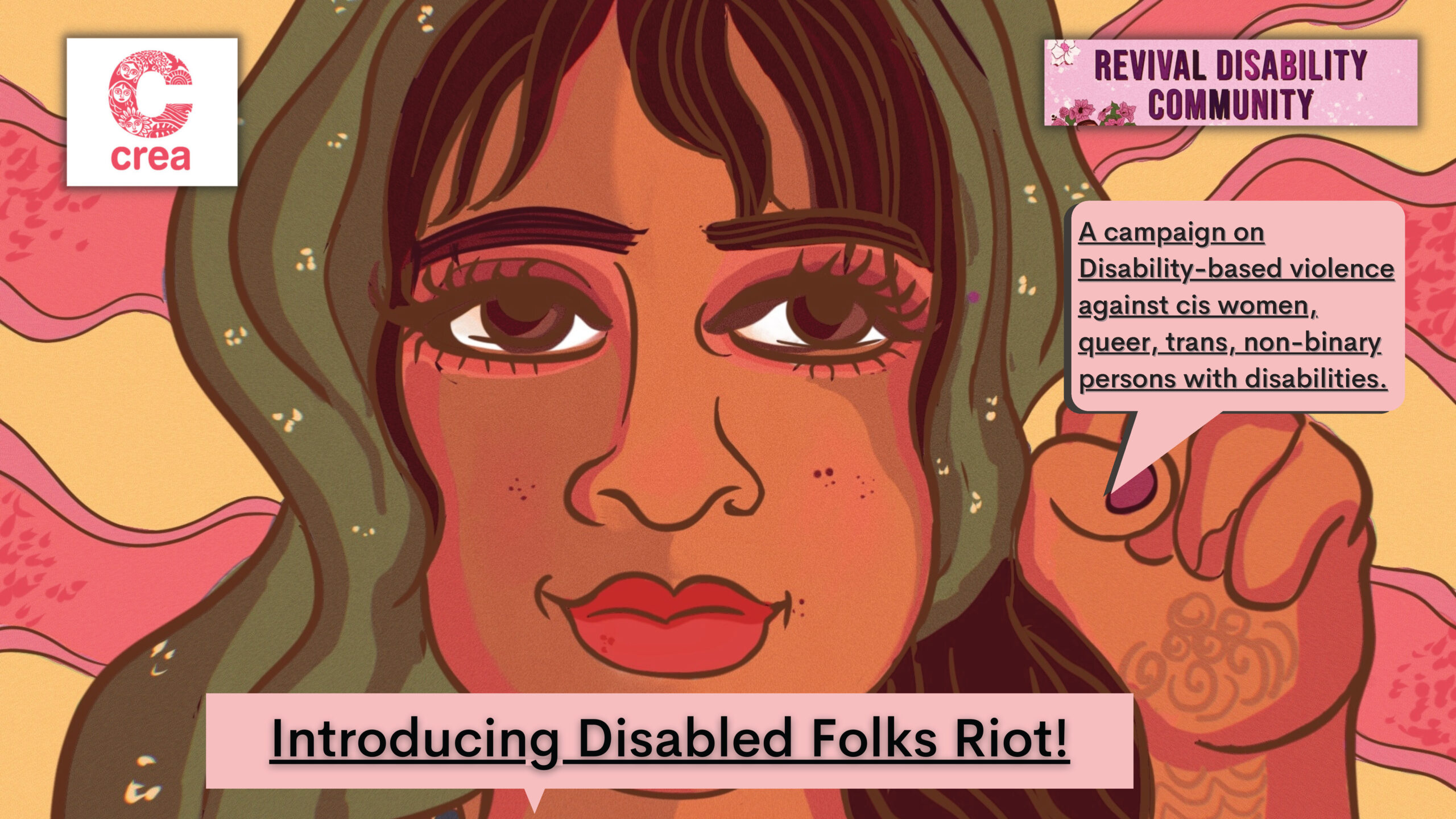
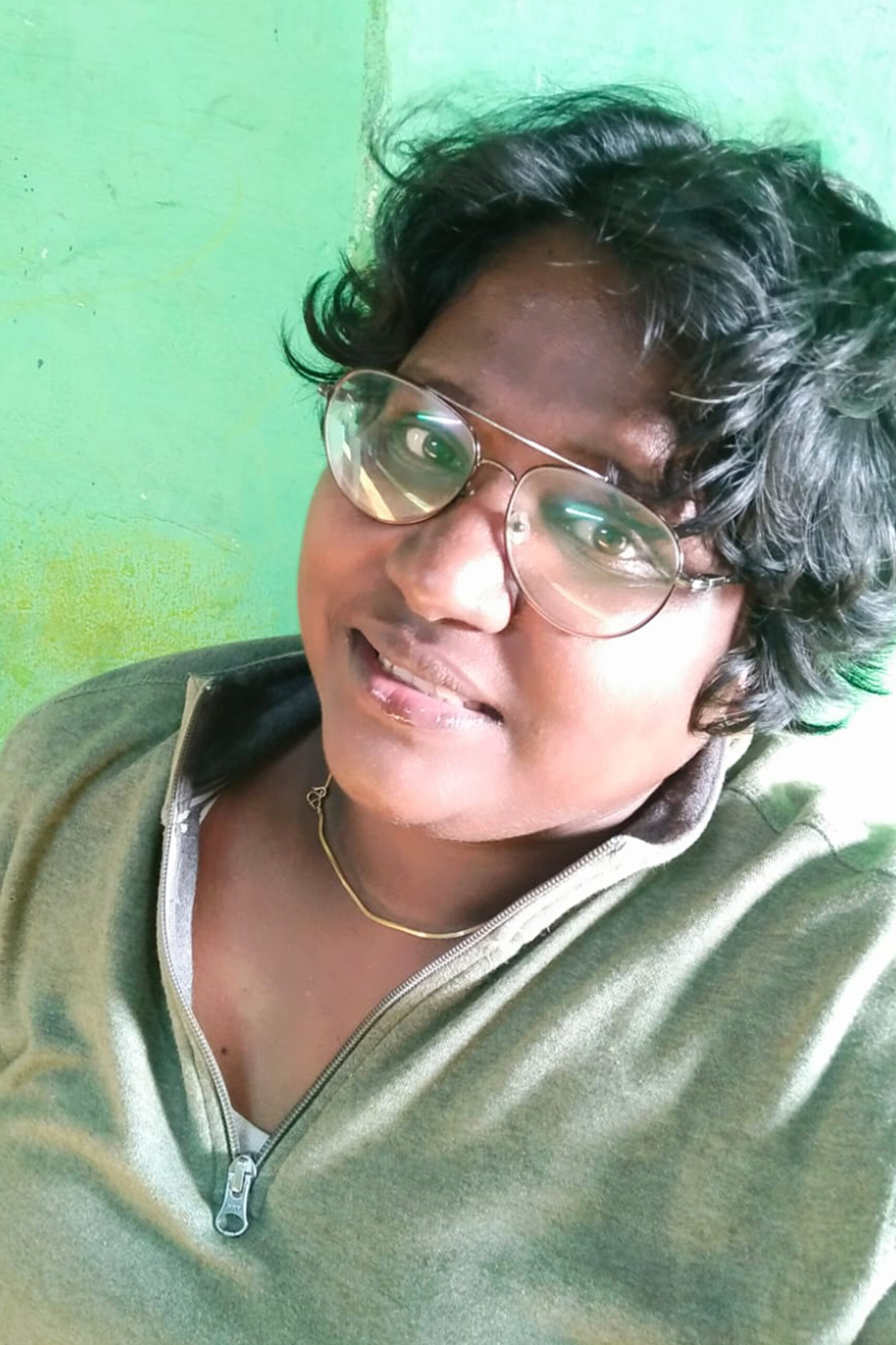
Vinodhan (Dhanalakshmi) calls themselves a proud intersex. They are engaging and working in various ways for intersex, persons with disabilities, and human rights activists. Vinodhan is currently pursuing their MBA in human resources. They also have an undergraduate degree in psychology and a diploma in nursing and radiology. Vinodhan is the founder of VoIS India Collective, which advocates for variations of intersectionality in support of intersex visibility in India. The collective was launched on October 26th, 2023, on Intersex Visibility Day. Vinodhan works with multiple stakeholders in the southern region of India. Vinodhan is one of the co-founders of Intersex Human Right for India (IHRI) and a former Intersex Asia fellow. Vinodhan has also written an autobiography titled Walking the Intersex Alley, which has been presented to various mental health and medical institutes for future generations to gain perspective on diversity.
I don’t even know the intersectionality in our region, [people] who are Dalit, who are intersex, who are disabled. I don’t even hear something around the term intersectionality. Our voices are very low. Literally, it’s not there to shout something. We are screaming, but there is no opportunity to hear our voice, what we really want, what is our right. No one knows. So that is the motivation for this project. Because I belong to those communities — I am queer, I am intersex, and I am disabled and I am a Dalit schedule caste person.
Having grown up in Tamil Nadu as an intersex person with disabilities, Vino connects their personal experiences with those of others to publish a collection of stories of growing up and living at the intersections of intersex rights, caste, gender and sexual diversity, and disability. The book, கரு விளங்காய் Karuvilangaai (I am I), written in Tamil and then translated to English, is the first book in Tamil to explore the intersectional issues of people in Tamil Nadu. It is a compilation of forgotten stories that tell the impact of intersex stigma on communities and a call for intersex rights.
Vinodhan took up the difficult task of connecting with other intersex people in Tamil Nadu to collate narratives and organize events that brought visibility to the challenges faced by intersex people. Through these events they raised awareness on LGBTIQ+ issues in the disability community, led the sensitization of disability issues in the queer community, and held events on disability, gender, and sexuality with educators and stakeholders from non-governmental organizations (NGOs).
I have learned that unity is the most important aspect of the queer, intersex, and disability rights movements through this work. In the marginalized communities of disabled and queer communities, intersex communities are the micro-marginalized section. I believe that the united effort for social acceptance, legal rights, medical, educational, and employment help would bring about a major change with the combined work of marginalized communities. Different marginalized communities could raise relevant questions and their efforts have thus far reaped fewer benefits, while united work can bring about radical change and recognition in society.
Vinodhan’s work highlights the lack of basic education around intersex rights and the role of culture and cultural expectations, particularly around gender, and the deep impact this has had and continues to have on individuals. The book also includes a set of guidelines for medical personnel, media, educational institutions, and the government to help mitigate these challenges.
Vinodhan pre-launched the book at an event in Chennai with the Aniyam Publishing House. The event included officials belonging to the governing political party in Tamil Nadu and various disabled and queer participants.
Vino is open for collaborations and/or requests to host this resource in alternative spaces.
Share:
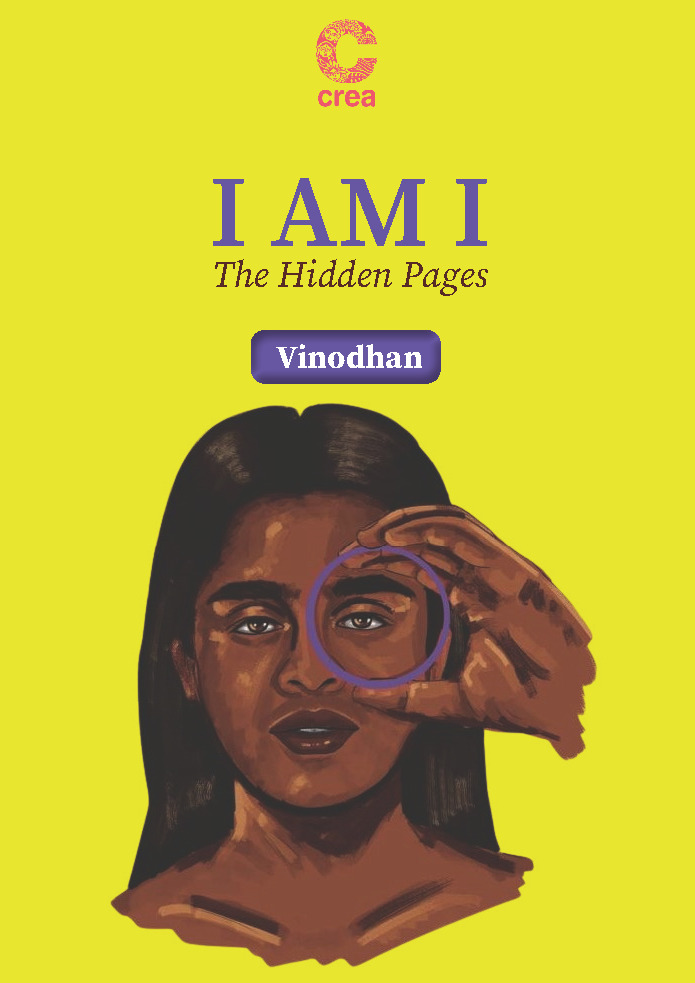
ring on her left hand held against her left eye, through which her gaze is coming. The illustration has a yellow background. And the woman has straight black hair. Above is the title ‘I am I’ in bold violet letters. Below is ‘The Hidden Pages’ in italicized brown letters. The author’s name is written in smaller, bold white letters on a violet box: ‘Vinodhan’. At the very top is the red-colored CREA logo.]
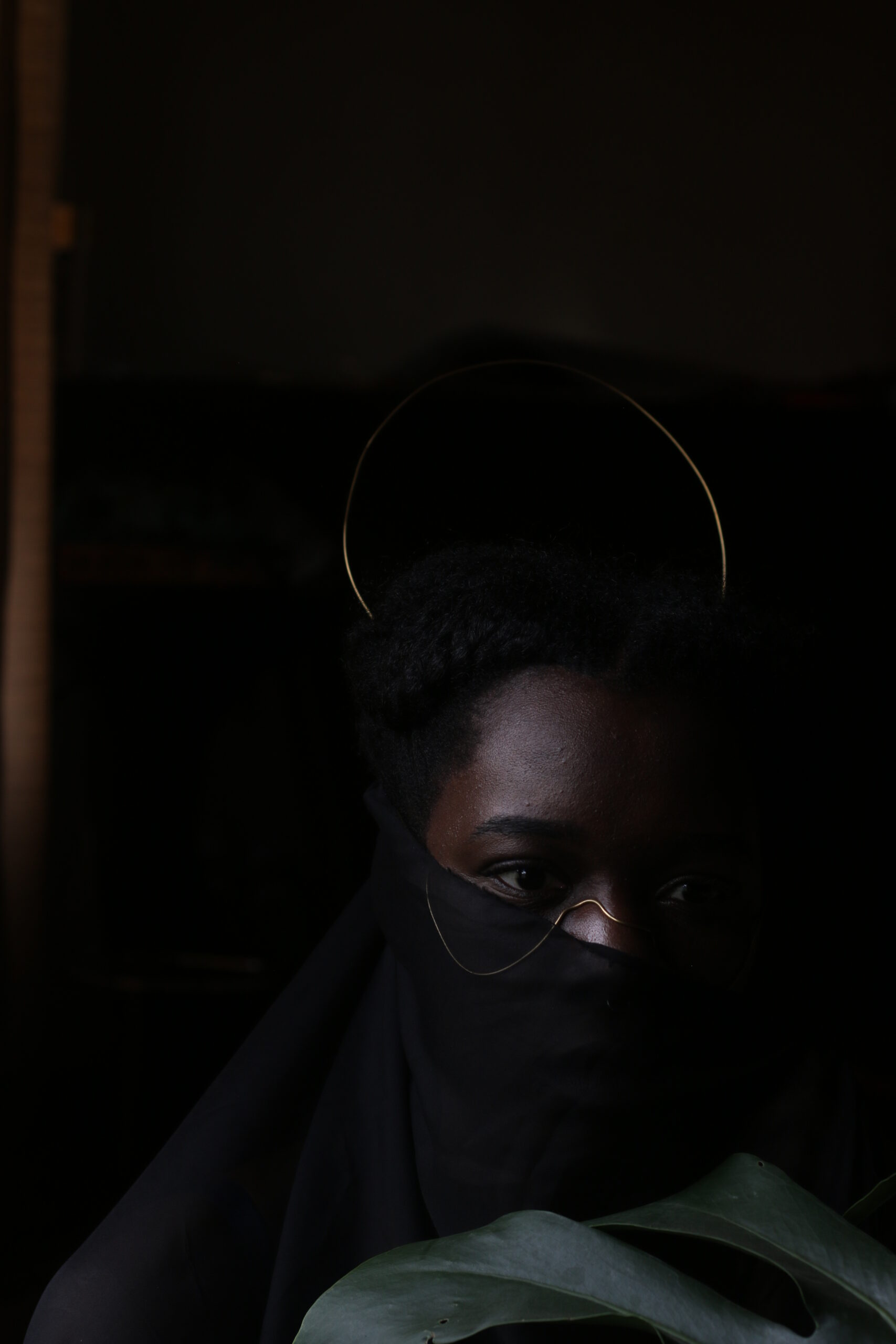
Awuor Onyango is a writer and multidisciplinary artist based in Nairobi, Kenya. Their work is concerned with (re)claiming public spaces erased/appropriated and/or disallowed to people considered black, femme, and other. Through writing, design, photography, experimental film, multisensorial installation, and fine art, they explore issues of access, transgression, shame, and discomfort of the (continental) black femme. Awuor’s recent exhibitions include: Body of Land, Glasgow international 2021, Library of Silence ii: Stellenbosch Trienale, Genesis: Autonomous bodies, Iwalewa Haus, Bayreuth, A Celebration of Queer Love, Appropriation and other practises, HBK Braunschweig (2018), School of Anxiety, Jo’Burg Art Fair, Johannesburg (2017), Freedom Corner, Nairobi (2018), Berlin Biennale of Contemporary Art, Berlin (2018), Parts Unknown, Anthony Bourdain Pop Up, Nairobi (2018).
…that’s why it’s called B is for bodies. It’s supposed to be kind of like an unofficial feminist alphabet that’s accessible to everyone. I just wanted to have a conversation with kids, but also with everyone, because I didn’t think it was a conversation that was happening in the Kenyan space about all these intersections and all these histories in a way that wasn’t an academic paper. It’s a way that invites you in, is accessible, is easy to read, to color, to talk about, to distribute, so that hopefully other conversations grow from it, and the conversations that grow from it can be conversations with a seven-year old, or conversations with a 70-year-old, who remembers one of the historical figures, or one of the movements.
Awuor, an artist, created an illustrated coloring book zine and a podcast that delves into inclusive and diverse feminist histories in Kenya. The zine, titled “B for bodies,” serves as an introduction to understanding the body as a voice and highlights the intersection of LGBTQ, feminist, and disability actions. Through exploring various figures and movements in Kenyan history, the zine examines the role of different types of bodies in protest and movement work.
Awuor brings to life the courageous stories of those who have fought tirelessly for equality and justice. Her illustrations capture the essence of the movement, evoking a sense of power and hope that is truly inspiring. As readers dive into the pages of “B for bodies,” they are transported to a world where the underrepresented are given a voice, where the marginalized are given a platform, and where change is possible. Through this work, Awuor has created a space where everyone is welcome and where each and everybody is celebrated. With her zine and podcast, she has opened up a cross-generational dialogue to be accessed by individuals of a wide age range, from a seven-year-old to a 70-year-old! Something they view as essential for progress and change. She has shown us that our bodies can be a powerful force for good, and that is truly something to celebrate.
Access and the ways in which working together across differences can strengthen movement work and how having difficult conversations in productive ways and being open to them can build stronger movements.
Awour is also open for collaborations and/or requests to host this resource in alternative spaces.
See here for a two-page printable version that can be folded into a zine (with folding instructions)
Share:
